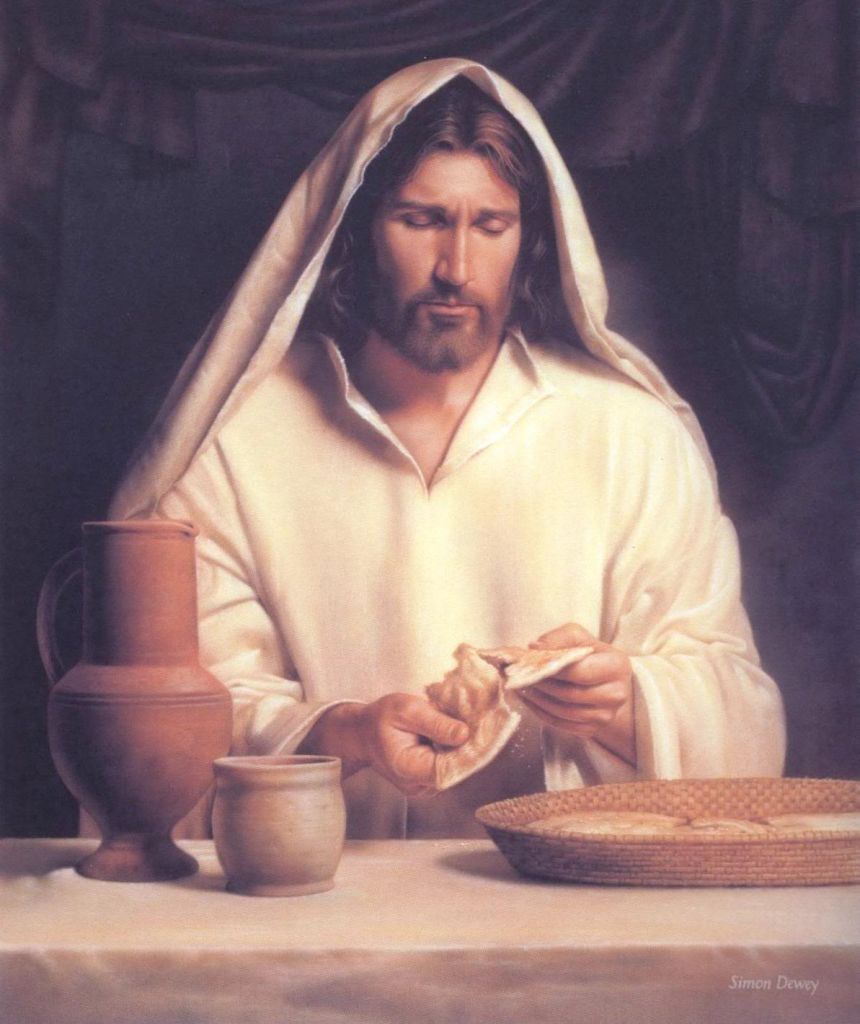
22 A Canaanite woman from that vicinity came to him, crying out, “Lord, Son of David, have mercy on me! My daughter is demon-possessed and suffering terribly.”
23 Jesus did not answer a word. So his disciples came to him and urged him, “Send her away, for she keeps crying out after us.”
24 He answered, “I was sent only to the lost sheep of Israel.”
25 The woman came and knelt before him. “Lord, help me!” she said.
26 He replied, “It is not right to take the children’s bread and toss it to the dogs.”
27 “Yes it is, Lord,” she said. “Even the dogs eat the crumbs that fall from their master’s table.”
28 Then Jesus said to her, “Woman, you have great faith! Your request is granted.” And her daughter was healed at that moment.
(Matthew 15:22-28)
The Scripture above tells us about a Canaanite woman who approaches Jesus Christ to heal her demon-possessed daughter. But Jesus was silent until his disciples came to urge him to heal her, so that she could be sent away. Yet Jesus answered, “I was sent only to the lost sheep of Israel.” (Matthew 15:22-24)

The woman later came and knelt before Jesus and begged for His Healing. What is perplexing is Jesus’ seemingly cold remark to the woman. He said to her, “It is not right to take the children’s bread and toss it the dogs.” (Matthew 15:25-26) But instead of getting offended, the woman admitted that she was a dog that eats the crumbs that fall from their master’s table. And hearing her response, Jesus applauded her faith and granted her request. (Matthew 15:27-28)
This part of the Bible is perplexing to me because of Jesus’ seemingly cold, almost harsh, remark to the woman: “It is not right to take the children’s bread and toss it to the dogs.” (Matthew 15:26)
Who are the children here? They are the “lost sheep of Israel,” mentioned earlier in this passage. (Matthew 15:24) And why did Jesus use the word bread? Surely, it is not because bread was a common food for dogs. But the bread in the Bible signified many things.

One, Jesus declared Himself as the bread of life and whoever comes to Him will never go hungry and whoever believes in Him will never be thirsty. (John 6:35-36) As the Jews began to grumble among themselves, Jesus again reiterated, “I am the living bread that came down from heaven. Whoever eats this bread will live forever. This bread is my flesh, which I will give for the life of the world.” (John 6:51)
At this point, the Jews began to argue sharply with one another. And Jesus said it the third time about him being the bread, in which one should eat his flesh and drink his blood to have eternal life. (John 6:53-59) This time, the disciples who had been following Him began to turn back except His 12 disciples.
Jesus then said to the crowd who was dispersing, “The Spirit gives life; the flesh counts for nothing. The words I have spoken to you – they are full of the Spirit and life. Yet there are some of you who do not believe.” (John 6:62-64) What Jesus meant is that He is the spiritual bread for our spirit and soul. And to feed on this spiritual bread, we need to first believe in Him as our Saviour and Lord. That is why in the last supper before His crucifixion, Jesus broke the bread and said, “This is my body given for you; do this in remembrance of me.” (Luke 22:19).

As a tripartite being – made from body, soul, and spirit (1 Thessalonians 5:23) – we need to not only feed our physical body with bread, but also our soul and our spirit, with the Word of God. That is why when Jesus was tempted by the devil to change stones into bread, Jesus said, “Man shall not live on bread alone, but on every word that comes from the mouth of God.” (Matthew 4:4) Bread signifies the spiritual food, offered by God through His Word, made possible by the death and resurrection of Jesus Christ.
Coming back to Jesus’ words, why did He refer to the woman as “dogs”? We may argue and say that Jesus could not possibly mean that. But plainly, He referred to her as a dog, which she also admitted herself as one. It does sound quite offensive. But for the sake of discussion, please bear with me, why dog and not other type of animals? A key character of why we can keep dogs as pets is because they are good followers that obey and follow their masters. The Canaanite woman was referred to as a dog, because she was a follower of other gods. Hence, using this word might not be as far off as you think, as many times, Jesus has used different pictures and allegories to bring forward his message of a follower or a slave, following the master.
How about us? Are believers also called as slaves? Paul mentioned that we are once slaves to sin, but after believing in Christ, we are slaves to righteousness. He says, “Don’t you know that when you offer yourselves to someone as obedient slaves, you are slaves of the one you obey – whether you are slaves to sin, which leads to death, or to obedience, which leads to righteousness?” (Romans 6:16) “Slave” here means one who is being subjected to an authority. When we believe in Christ, we come under His Authority and His Covenant.

Hence, coming back to the Canaanite woman, since she fell under the covenant of other gods, healing her daughter who was demon-possessed will not be effective. Why? That is because she was not under the covenant of Jesus Christ. Hence, even if her daughter were delivered, Christ’s protection would not come over her daughter. And this would leave her even worse off because the demons would return bringing demons worse than itself into her. Let us look at what Jesus says regarding this, “When an impure spirit comes out of a person, it goes through arid places seeking rest and does not find it. Then it says, ‘I will return to the house I left.’ When it arrives, it finds the house unoccupied, swept clean and put in order. Then it goes and takes with it seven other spirits more wicked than itself, and they go in and live there. And the final condition of that person is worse than the first. That is how it will be with this wicked generation.” (Matthew 12:43-45) Believing in Christ would allow His Holy Spirit to occupy the person, thus offering her daughter complete and effective protection from the spirits of darkness.

This also explains why it is unwise to deliver a nonbeliever from the Kingdom of darkness, without him or her believing in Christ, which nullifies all covenantal ties with the Kingdom of darkness. The deliverance might backfire not only on the person receiving the deliverance, but also the person doing the deliverance. Hence, the Bible is absolutely important in practicing the deliverance ministry which include studying the laws and spirits of this world, the proper respect for spiritual boundaries, and the proper procedures to be taken.
Finally, while I would expect the Canaanite woman to be offended, she appeared to see Jesus’ response in a different light and understood what He meant. She replied to Jesus, “Even the dogs eat the crumbs that fall from their master’s table,” to which Jesus applauded her faith and granted her request. (Matthew 15:27) But what did she mean by saying that? Firstly, what kind of dogs would eat the crumbs that fall from their master’s table? It follows that this dog is residing in the same household of the children. It is certainly not a dog that belongs to other households or a dog that strays on the street. In other words, this dog is adopted as a member of the household, and in this case it is the household of Jesus Christ. What the woman is effectively saying is, “I belong to Your Household and I believe in you Jesus Christ as my Master.” That is why she said “master’s table.” And because of her faith, Jesus granted her request because through her faith in Him now, He can protect her daughter from further attacks by the demons, making her daughter completely healed and protected under now His Covenant and His Authority.

To deliver people from evil spirits is truly a gift from God. And sometimes, the spiritual world does appear mysterious. But from reading this passage, I am very encouraged and comforted to find that the Bible holds the keys to do the deliverance ministry. Again, the Bible holds the law and order of the spiritual world, the proper respect for spiritual boundaries, and the proper procedures to be taken. Certainly, the Lord would not leave us in the dark from dealing with the spiritual world. Led and revealed by the Holy Spirit, He will reveal to us His Way and His Power. Hence, the conclusion of this article is also that for every ministry in God including the deliverance ministry, look to the Bible for answers, “for though we live in the world, we do not wage war as the world does. The weapons we fight with are not the weapons of the world. On the contrary, they have divine power to demolish strongholds.” (1 Cor 10:3-4) Shalom.

| Share the Good News |




In response to a “call”, allow me to forward a different view to this perplexing scene. By faith I’ve seen (hidden all these while until yesterday) two aspects in this scene: Holy Communion and Play (Flexibility).
The bread and the Master’s table here refer to communion.
The Holy will not commune with the unholy (the dogs).
Another wall to deny her access: I was sent … Israel.
The woman probably has heard that even Samaritan (foreigner; Lk 17:12) was healed. And she cried for mercy like others too. She refused to budge – she plied her way with words (by playing with words) with the Word. For the sake of her loved ones she (like anyone else) will throw every spanner she could. Great maneuvering indeed!
As in the case of the commendable manager, the issue of dishonest is just of lesser significance. The lose of face is just “temporal” (a small price) – the Master said she has great faith!
Coincidently in my church yesterday:
1. I had communion with my church members.
2. During the service, faith was extensively emphasized, and 2 Co 4:17-18 (temporary vs eternal) was briefly mentioned.
Let His name be glorified!
Regards
Well explained this is great understandable
very helpful…got a really good understand.
God bless you malaysia ministry team
My spirit is really touching because of the passage